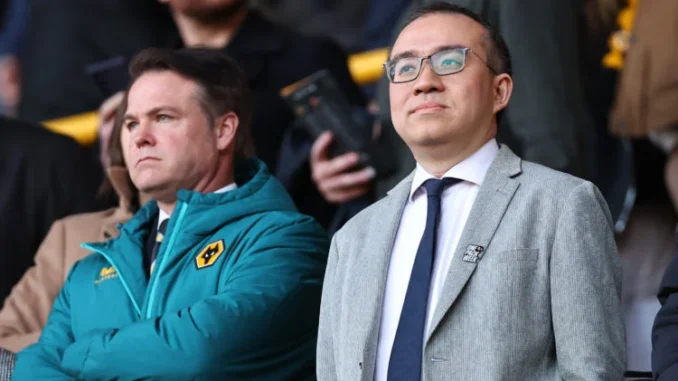
The last two seasons, Wolves have had difficulty staying competitive in the transfer market. The Molineux supporters were brought back to earth by Fosun following Wolves’ massive spending binge in the 2022–2023 campaign, which saw the team lose a number of players the following summer.
Along with manager Julen Lopetegui, the main players to depart for large sums of money were Ruben Neves and Matheus Nunes. It was commonly known that Wolves was having trouble with FFP.
Nonetheless, many fans had hoped that the team would return to being more competitive in the market after escaping a point deduction the previous season. But Wolves hasn’t invested much, even after Pedro Neto and Max Kilman left for a combined total of nearly £90 million.
On Monday, annoyance increased upon learning that Wolves’ remaining window budget was £20 million. Now that Wolves may decide to spend so little over the next week and a half, our financial expert has explained why.
Wolves’ PSR capacity could be “strained” by spending more than £20 million

Before the deadline, a lot of supporters had hoped to see Kilman and Neto replaced; but, considering the budget, this might not be possible. Fans of Wolves have questioned why the team is spending so little when it appears like the team is becoming worse every season.
In order to obtain a response, Molineux News has gotten in touch with Adam Williams, Head of Football Finance and Governance Content at GRV Media. “Wolves lost £67 million in 2022–2023; this counts toward their three-year PSR computation,” he stated.
According to a thorough analysis by football finance writer Swiss Ramble, in order to avoid a violation, their losses for 2023–2024 would have to be kept under £29 million. They seem to have arrived at that point with considerable breathing room after the sales of Neves and Nunes.
This would essentially imply that in order to stay within the Premier League’s rolling three-year £105 million permitted loss threshold, they must break even in 2024–25. They reported a sizable operating deficit in 2023–24, therefore it stands to reason that they would require a sizable profit from player sales this term.
However, due to the way transfers are amortized, even if Wolves spend £20 million in the final ten days of the window, just £4 million will be included in their PSR estimate. “I think they could probably spend a little bit more than that headline £20 million figure as a result if they really wanted to push the upper limit of PSR.” It’s not a free hit, though, because doing so would concurrently put additional pressure on their PSR capacity in upcoming seasons.
In the end, Wolves’ recent seasons have seen them reach their expenditure cap. You must increase income in order to lift that ceiling.
This can be achieved on the field with accomplishments like European qualification, but doing so usually necessitates spending money on the playing group.
PSR’s paradox is the reason why many believe it is unsuited for its intended use. Over the past few seasons, the Wolves have done a respectable job of growing their commercial revenue. By the time they issue their 2023–24 accounts, it will most likely reach £30m.
Wolves has justified the significant increase in ticket prices for this season by pointing to the fact that their matchday income has increased more slowly than that of certain other clubs. These are the choices that PSR ultimately requires owners to make.
Do you make the squad better overall at the expense of ardent supporters, or do you sell an extra player or decide not to recruit another? That presents a dilemma.
Read more news on
sportchannel.co.uk
Leave a Reply